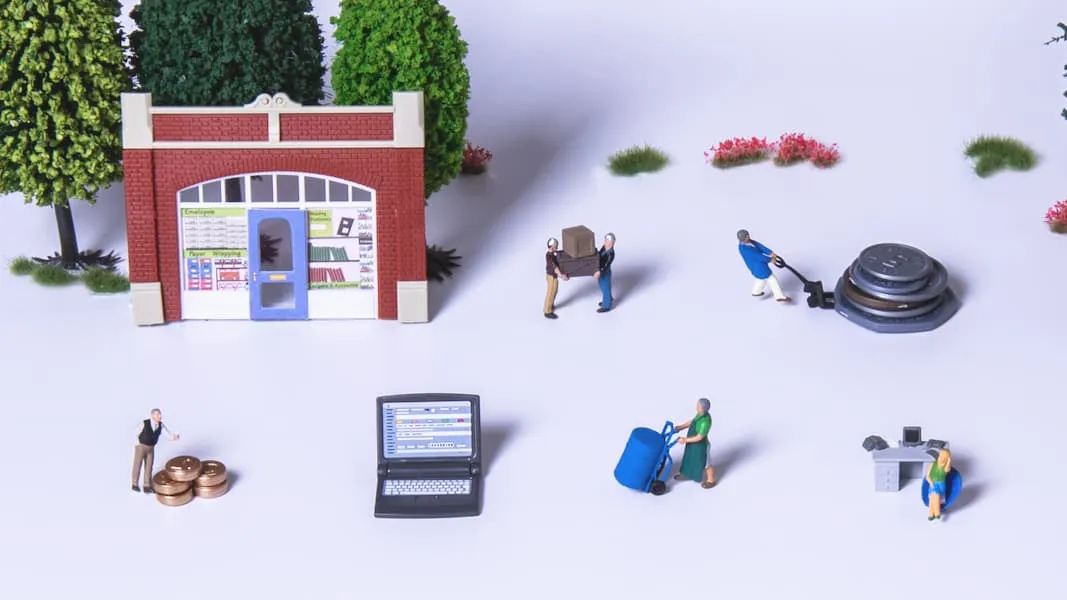I’m a furloughed director, can I still work?
5
min read
I’m a furloughed director, can I still work?





Since the Coronavirus Job Retention Scheme (CJRS) opened for applications in March, over 930,000 businesses across the UK have applied. Through the scheme, businesses that have been hit by coronavirus can ‘furlough’ their employees – putting them on temporary leave while receiving a grant for 80% of their monthly wage (up to a maximum of £2,500). Employees on full-time, part-time and zero hours contracts can all be furloughed as long as the company has been using a PAYE system since before 28 February 2020.
While the Government has made it clear what duties regular employees can undertake while on furlough, if you’re considering furloughing yourself as the director of a business it can be difficult finding out exactly what you can and can’t do.
In this guide, we’ll unpack exactly what you need to know so that you can claim a furlough grant while staying within the rules of CJRS.
I’m the director of my business, can I furlough myself?
Yes, if you’re the director of a limited company you’ll be able to furlough yourself through the Coronavirus Job Retention Scheme. The scheme outlines that employees who’ve been on the payroll on or before 19 March 2020 will be eligible for this scheme, as long as your business has been using a PAYE scheme since before 28 February 2020.
If you’re unsure about whether you could furlough yourself or another one of your employees, check out our main CJRS article or take a look at the Government’s eligibility page.
I’m paid in dividends, can I still receive furlough pay?
In order to claim a furlough grant through this scheme, you’ll need to take a salary through a PAYE scheme. If you don’t take a salary through your PAYE scheme and are paid solely in dividends instead, then you won’t be eligible for a furlough grant.
However, if you’re paid in both dividends and a salary, you’ll be able to claim 80% of your average salary earnings. Your average earnings used to calculate your furlough pay will depend on how long you’ve been in a salaried position in your business. To calculate how much you could claim, use the Government’s handy calculator.
{{flexi-loan="/components"}}
Once I’m furloughed, can I still work?
If you furlough yourself you’ll no longer be able to work as normal. Instead, your duties will be restricted to administrative ones that keep the business afloat – such as filing a tax return or managing your payroll. You won’t be allowed to continue with normal work or do anything new that generates revenue for the business.
You’ll still be allowed to take part in learning and development (L&D) courses to learn new skills, or to keep your mind sharp for when you return to work. This could include attending webinars or remote networking events. If you have access to any free L&D resources, it could be a good idea to make your employees aware of them as it could make their experience of furlough more positive.
L&D platforms such as LinkedIn Learning, Pluralsight and Udemy offer a range of courses, with all of them offering either a demo version or free trial.
If you’re unsure about whether you should be doing a particular kind of work or duty while claiming CJRS, make sure that it doesn’t generate any commercial revenue for your business, and doesn’t provide a service to or on behalf of your business.
Example
If you run a barbers and have furloughed yourself under the scheme, you would not be allowed to go to a client's houses to offer private hairdressing services on behalf of your business. Doing so would be generating new business and could result in your furlough payments being withdrawn, and past payments needing to be repaid.
However, if you had to furlough your accounts manager who usually handles your payroll services, you’d be within your right to take on that duty in order to make sure your employees get paid on time.
Statutory duties for company directors
If you’re a company director, you’ll probably be aware of the seven statutory duties expected of you according to The Companies Act 2006. If not, don’t worry, we’ve listed them below. These duties ensure that business owners act with integrity and fulfil certain legal obligations.
As the director of a business, you are required to:
- act in accordance with your company’s powers
- promote the success of your company
- exercise independent judgement
- exercise reasonable care, skill and diligence
- avoid conflicts of interests and seeking personal benefits
- not accept third party benefits
- keep a record of board decision making processes
For more information on your statutory duties as a business owner, view the Government’s dedicated page.
Are statutory duties compatible with furlough?
Under the current CJRS guidelines, directors may find it difficult to furlough themselves and remain totally inactive. There appear to be some contractions between a director’s statutory duties and what they are allowed to do while furloughed.
For example, a furloughed director who decides not to make a strategic decision that could save their business is not ‘promoting the success of their company’.
We’ll be updating this page with any new information that brings clarity, but for the moment, to avoid fines and penalties it’s best only to work within the guidelines listed above – avoid doing any work that generates commercial revenue for your business while furloughed.


How to use payroll loans for small businesses

Business Loans comparison: High Street Banks vs. Alternative Lenders
Comparing the pros and cons of getting a business loan from traditional lenders and alternative finance providers, including how they differ in application processes, speed of funding, rates and flexibility.

Working capital ratio
Discussing the importance of calculating your company’s working capital ratio, what it represents and how to improve the ratio.








